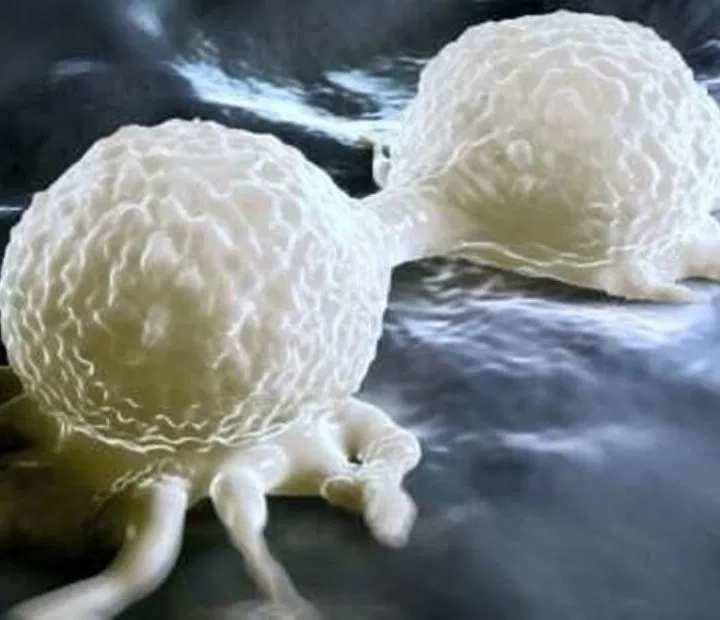‘Stop eating this immediately,’ warn can-cer researchers
In recent years, headlines like “Sugar Feeds Cancer” and “Cut Sugar to Prevent Cancer” have sparked fear and confusion. But what exactly is the link between sugar and cancer? And should you really stop eating sugar immediately , as some researchers suggest?
Let’s dive into the science, separate fact from fiction , and understand how diet impacts cancer risk .

The Science Behind Sugar and Cancer
While sugar itself does not cause cancer , research shows that high sugar intake can create an environment in the body that supports cancer growth . This connection lies in how cells metabolize glucose and how chronic inflammation and insulin resistance may fuel cancer development.
How Cancer Cells Use Sugar
All cells — including cancer cells — use glucose (a form of sugar) for energy. However, cancer cells often consume more glucose than normal cells , a phenomenon known as the Warburg Effect .
- Cancer cells prefer fermenting glucose for energy, even when oxygen is available.
- This increased glucose uptake helps them grow and divide rapidly.
- PET scans use this principle to detect tumors by tracking where glucose accumulates in the body.
But here’s the catch:
Your body needs glucose — especially your brain, nervous system, and muscles. Eliminating sugar completely isn’t possible or healthy.
The real issue is:
Excess sugar consumption fuels metabolic problems that increase cancer risk over time.
Why Too Much Sugar Is Dangerous for Cancer Risk
While sugar doesn’t directly “feed” cancer in the way many headlines suggest, excessive sugar intake can contribute to conditions that increase cancer risk :
1. Obesity
High-sugar diets are strongly linked to weight gain and obesity — which is a major risk factor for at least 13 types of cancer , including breast, colon, pancreatic, and liver cancers.
2. Insulin Resistance & High Insulin Levels
Consuming large amounts of refined sugars causes spikes in blood sugar, prompting the body to release more insulin . Over time, this can lead to insulin resistance , a hallmark of type 2 diabetes.
Studies show that elevated insulin levels promote tumor growth by stimulating cell proliferation and inhibiting apoptosis (programmed cell death).
3. Chronic Inflammation
High-sugar diets contribute to systemic inflammation , which is associated with DNA damage and the development of cancerous cells.
4. Increased Hormonal Imbalance
Excess sugar intake affects hormones like estrogen and IGF-1 (insulin-like growth factor) , which play roles in hormone-sensitive cancers like breast and prostate cancer .
What Do the Studies Say?
Several studies and expert panels have weighed in on the sugar-cancer link:
📌 World Cancer Research Fund (WCRF) and American Institute for Cancer Research (AICR)
These organizations state that diets high in sugar contribute to weight gain , and being overweight increases cancer risk .
They recommend limiting:
- Sugary drinks
- Sweets
- Refined carbs
📌 Harvard T.H. Chan School of Public Health
Researchers note that while sugar doesn’t directly cause cancer , it contributes to obesity, insulin resistance, and inflammation — all of which indirectly raise cancer risk .
📌 Journal of Clinical Investigation (2020 Study)
A study found that mice fed a high-sugar diet were more likely to develop tumors , particularly in the colon , compared to those on low-sugar diets.
📌 European Journal of Nutrition
Research suggests that people who drink one or more sugary drinks per day have a higher risk of developing certain cancers, especially liver and breast cancer .
🧠 Does Sugar Make Cancer Grow Faster?
There’s no direct evidence that cutting sugar will stop cancer from growing. However, limiting sugar can help slow cancer progression by improving metabolic health and reducing inflammation.
Some oncologists now incorporate low-carb or ketogenic diets in cancer treatment plans — though results vary depending on the type of cancer and individual metabolism .
Which Sugars Should You Avoid?
Not all sugars are created equal. Here’s what to cut back on:
Healthy Alternatives to Refined Sugar
You don’t need to eliminate sweetness entirely. Instead, choose whole foods that offer natural sugars along with fiber, antioxidants, and nutrients .
an a Low-Sugar Diet Help Prevent or Treat Cancer?
While there’s no one-size-fits-all answer , evidence increasingly supports the idea that reducing sugar intake improves outcomes , especially in people already at risk for cancer or undergoing treatment.
What Oncologists Are Starting to Recommend:
- Limit added sugars and refined carbs.
- Focus on whole, nutrient-dense foods.
- Maintain stable blood sugar through balanced meals.
- Consider intermittent fasting or ketogenic diets under medical supervision.
- Monitor insulin and inflammatory markers during treatment.
Sample Anti-Cancer Meal Plan (Low-Sugar, Nutrient-Dense)
Here’s a sample daily plan to reduce sugar and support overall health:
Breakfast
- Veggie omelet (spinach, tomatoes, mushrooms)
- Avocado slices
- Green tea or black coffee
Snack
- A handful of almonds or walnuts
- A few blueberries or half an apple
Lunch
- Grilled chicken salad with olive oil dressing
- Quinoa or farro
- Mixed greens, cucumbers, bell peppers
Snack
- Carrot sticks with hummus
- Boiled egg
Dinner
- Baked salmon or tofu
- Roasted Brussels sprouts or broccoli
- Cauliflower rice or brown rice (small portion)
Evening
- Warm lemon water or herbal tea
- Small square of dark chocolate (70%+ cocoa), if craving something sweet
Lifestyle Changes That Support Cancer Prevention
Diet alone isn’t enough. Combine it with these healthy habits:
Who Should Be Especially Cautious?
Certain groups should be especially mindful of their sugar intake due to increased cancer risk:
inal Thoughts: Should You Stop Eating Sugar Immediately?
While you don’t need to go cold turkey, dramatically reducing your intake of refined sugars and processed foods is a smart move — especially for long-term cancer prevention.
Instead of focusing on total elimination, focus on:
- Choosing whole foods over processed ones
- Balancing meals with protein, healthy fats, and fiber
- Keeping blood sugar levels stable and predictable
“It’s not about banning sugar — it’s about building a lifestyle that starves cancer of the conditions it thrives in .”

